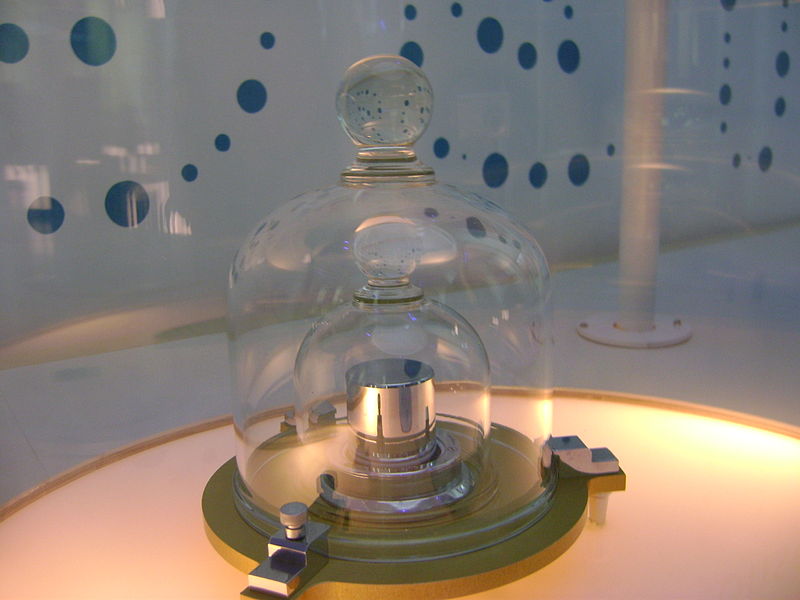“Its effect of setting a standard unit in trade, however, was negligible when compared to how it impacted on science.”
In the quiet suburb of Saint-Cloud in Paris, vacuum-sealed under three glass bell jars, lies the most protected lump of platinum alloy cylinder known to man. Until very recently, this lump of metal dictated the meaning of a kilogram.
On the eve of the French revolution, there were around 800 units of measurement in France, and none of them were particularly reliable. At the beginning of the revolution, a panel of five scientists were appointed by the Académie des Sciences to devise a unified system for measurement. In 1795, it became law that these units were to be applied throughout France. From 1799, a metal cylinder known as Le Grand K became the archetype by which all kilograms are defined, even in present world. This eventually relinquished all other measurements of weight, which had been growing increasingly and were impractical for trade. Its effect of setting a standard unit in trade, however, was negligible when compared to how it had an impact on science. It allowed for the more fluid communication between scientists about the scales of their findings.
Nevertheless, earlier this month, a vote was held in Versailles to change our units of measurement again. This vote was to change the ubiquitous Système International (SI) units so that they’re based on fundamental constants of nature, and not artefacts like Le Grand K, which has been slowly losing mass over the years. At its most recent weigh-in in 1988, it was found to be 0.05 milligrams lighter.
“The 58 members of the General Conference on Weights and Measures unanimously voted to establish a new standard not only for the kilogram, but also for the kelvin, the mole, and the amperes.”
The 58 members of the General Conference on Weights and Measures unanimously voted to establish a new standard not only for the kilogram, but also for the kelvin, the mole, and the amperes. This is four out of the seven SI units. The other three – distance (the metre), time (second), and light intensity (the candela) – have already been set to fundamental constants of the universe.
But how exactly do we make units that are a bit less arbitrary? Well, by calculating them relative to a fixed universal constant. When it comes to the kilogram specifically, we will use Planck’s constant. This is a fundamental constant that relates the frequency of a photon of light to its energy. In other words, E=hf. The latter decimals of Planck’s constant are uncertain, but if we were to make them static, then we would generate a more reliable measurement of weight. Through the process of entropy, all atoms decay via radiation over time. Thus, no matter how much we protect Le Grand K, it cannot remain constant. It has already been swapped out earlier, in 1889.
In order to set this constant as the way we measure weight, we need to make sure our measurements and calculations have been as accurate as possible. Otherwise, it would lead to major headaches down the line. In July 2017, the National Institute of Standards and Technology (NIST) measured the Planck constant using its Kibble balance instrument. This instrument calculates the Planck’s constant by balancing a highly accurate weighing scale with a kilogram on one side against the force of an electromagnet.
“The mole will now be defined by the newly fixed constant of Avogadro’s number.”
The alteration of the kilogram alters some of the other SI units, which will now also be defined in relation to constants that were also once uncertain. The mole will now be defined by the newly fixed constant of Avogadro’s number. The ampere will be defined on our most accurate measurement of an electron’s charge. Likewise, the kelvin will be set to the newly-fixed Boltzmann constant.
The definition of the kilogram may be changing, but don’t worry, you’re not going to gain or lose any weight because of this. There is no need to throw out your bathroom scales, as the changes brought about by this decision will only be of real importance with laboratories and won’t impact our everyday life.






